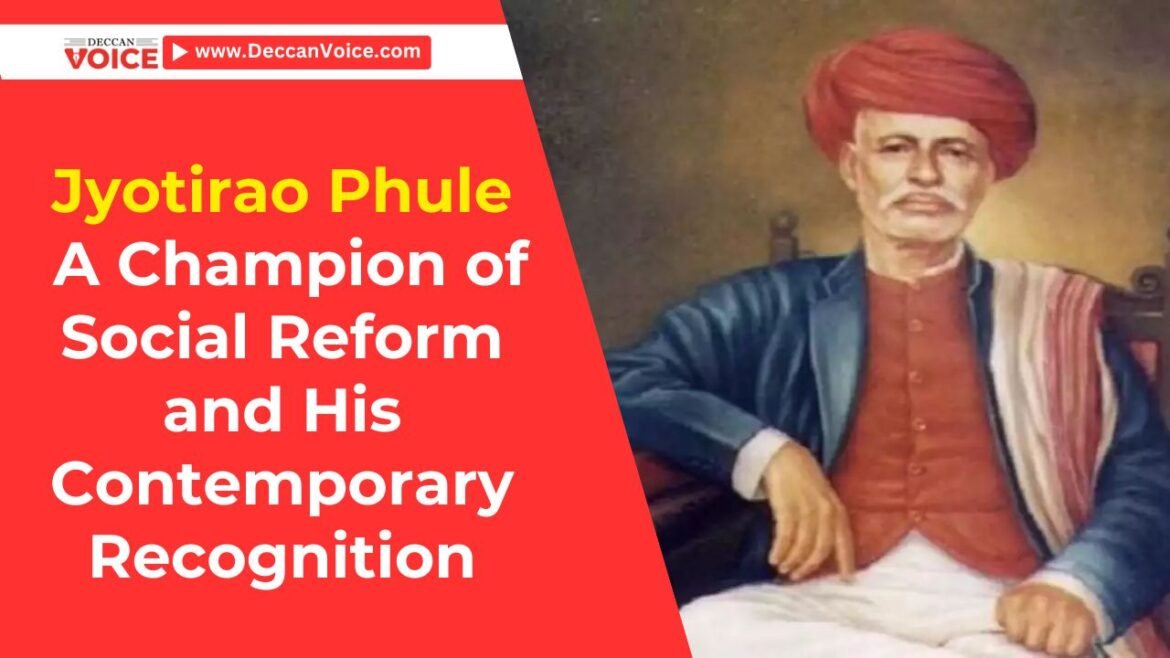Jyotirao Phule (1827-1890) was a pioneering social reformer, thinker, and writer from Maharashtra, India. Along with his wife, Savitribai Phule, he founded the first school for girls in India in 1848, challenging norms that denied education to women and lower castes. Phule was a vocal critic of the caste system and Brahminical hegemony, advocating for the upliftment of oppressed classes and emphasizing the importance of rational thinking and equality.
Phule Contributions and Legacy
- Education for All: Phule’s pioneering work in education aimed at breaking the barriers of caste and gender. He believed that education was the key to social emancipation and worked tirelessly to ensure that marginalized communities had access to it.
- Anti-Caste Movement: Phule’s criticism of the caste system and Brahminical dominance was radical for his time. He founded the Satyashodhak Samaj (Society of Truth Seekers) in 1873 to promote social equality and fight against caste oppression.
- Women’s Rights: Phule was an early advocate for women’s rights in India. He worked alongside his wife to establish schools for girls and fought against child marriage, widowhood, and other social injustices faced by women.
Controversy and Opposition
Despite his contributions, Phule’s outspoken criticism of the caste system and Brahminical authority led to significant opposition from conservative sections of Hindu society. Some reasons why certain Hindus dislike Phule include:
- Challenging Brahminical Authority: Phule’s criticism of Brahminical practices and his efforts to dismantle the caste hierarchy were seen as a direct threat to the traditional social order.
- Promotion of Rationalism: Phule’s emphasis on rational thinking and his condemnation of religious orthodoxy clashed with the beliefs of conservative Hindus who viewed his ideas as an attack on their religious practices.
- Empowerment of Lower Castes: Phule’s work towards the empowerment of lower castes and his call for social equality were opposed by those who benefited from the existing hierarchical structure.
- Legacy of Social Reform: Phule’s legacy as a social reformer continues to inspire many, but it also evokes resistance from those who see his ideas as challenging traditional Hindu values.
Recognition by Prime Minister Narendra Modi
 Prime Minister Narendra Modi has publicly praised Jyotirao Phule for his remarkable contributions to social reform. On Phule’s birth anniversary, Modi acknowledged his efforts in promoting education, fighting against social evils, and empowering marginalized communities. This recognition highlights the enduring impact of Phule’s work and his significance in India’s history of social justice.
Prime Minister Narendra Modi has publicly praised Jyotirao Phule for his remarkable contributions to social reform. On Phule’s birth anniversary, Modi acknowledged his efforts in promoting education, fighting against social evils, and empowering marginalized communities. This recognition highlights the enduring impact of Phule’s work and his significance in India’s history of social justice.
Phule’s life and work remain a testament to his commitment to social justice and equality. While his ideas were revolutionary and faced resistance, they laid the foundation for many progressive changes in Indian society. His legacy is celebrated by those who advocate for a more just and equitable society, even as it continues to provoke debate and discussion.



